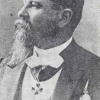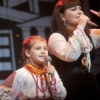 346786
346786
Moldavian Music
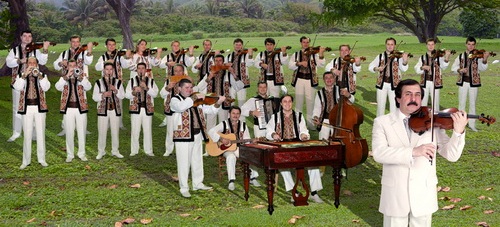
The Moldavian music reflects the diversity of the nation as well as the soul of every Moldavian. Music tells us about the musical depth and temperament of the people, their tribute to the forefathers and freedom of musical thought. Music is mother’s lullaby as well as famous single, which can become known in a few days. The Moldavian musical culture is what we have in common with the neighboring countries, in spite of national and religious differences.
Taking shape over the centuries, experiencing the influence of art of neighboring countries, the musical culture of Moldova was eventually formed into the unique phenomenon. Folk music plays a critical part here. The first samples of folk music are work and ceremonial songs: carols, drinking songs, wedding laments, funeral laments. The Moldavian folk music has also such forms as “bochet” (lament) and urban romance. Folk art is presented by unique instrumental melodies.
In general, folk music for Moldova is the same as the literature of the XIX century for Russia, and classical music or philosophy for Germany. The Moldavian folk music is polyphonic and complex.
The process of formation of the Moldavian musical culture, which takes its roots in the culture of ancient Thrace, was affected by more than 200-year-old political dependence on Turkey. The Moldavian folklore was also influenced by the culture of the ancient Slavs. Besides, the influence of the Hungarians and Romanians played a critical part in the development of musical culture. However, the Moldavian culture has formed into a coherent and unique phenomenon, with its distinct characteristics. It managed to combine organically different, sometimes conflicting influences, relying on the powerful cultural foundation of the ancestors.
The oeuvre of classical music composers takes special place in the process of the development of the Moldavian musical culture. Many streets and schools in the country are named after Gabriel Muzichesku, Ciprian Porumbescu, Eugene Kok, Stephen Nyaga. The oeuvre of these composers is being studied at schools and universities. These composers glorified the Republic of Moldova in the world. They managed to cover most genres and styles of classical music.
Despite the fact that the Moldavian music has deep national traditions, the modern music styles such as jazz, rock, electronic music becomes more popular recently.
It is impossible to ignore the art of film music, especially the works of Eugen Doga. He wrote music for more than 200 films, among them the “Jamila”, “Lautars”, “Gypsies Go to Heaven”, “My Sweet and Tender Beast” etc. These tunes are known around the world.
There are dozens of ethnic and cultural associations in Moldova. Such national minorities, as the Ukrainians, Russians, Bulgarians, Gagauzes, Jews, Poles, Germans, Romani peoples, Italians and others have their cultural associations and foundations. The principle of equality and universality of cultural legislation is observed in Moldova, so that ethnic minorities have the opportunity to develop their traditional culture and folklore. On our website there are samples of music of the ethnic minorities living in the territory of Moldova.
If you have additional information for our section, please tell us about it on the forum. We really appreciate that.
În contextul lansării programului ”Satul European”, ce probleme vitale există în localitatea dumneavoastră?
- Statut:
- Sat
- Prima atestare:
- sec. XX
- Populația:
- 79 locuitori
Pobeda este un sat din cadrul comunei Colosova din Unitățile Administrativ-Teritoriale din Stînga Nistrului, Republica Moldova. Localitatea se află la distanța de 39 km de orașul Grigoriopol și la 76 km de Chișinău. Populaţia satului Pobeda alcătuia 79 oameni în anul 2000. atul Pobeda a fost înființat la începutul secolului XX.





 14 noiembrie - Calendarul celor mai importante evenimente din trecut și prezent
14 noiembrie - Calendarul celor mai importante evenimente din trecut și prezent 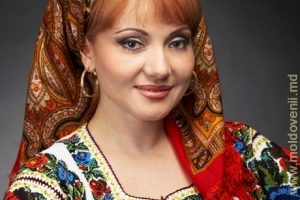 MELODIA ZILEI: Adriana Ochişanu - Ista-i moldoveanu'
MELODIA ZILEI: Adriana Ochişanu - Ista-i moldoveanu'  Sfinţii Cosma şi Damian doctori fără de arginţi
Sfinţii Cosma şi Damian doctori fără de arginţi  Moldografia: Lacul de acumulare pe rîul Camenca
Moldografia: Lacul de acumulare pe rîul Camenca  Victor Rusu-Ciobanu – 113 de ani de la naștere
Victor Rusu-Ciobanu – 113 de ani de la naștere  Omagiu lui Sandri Ion Şcurea
Omagiu lui Sandri Ion Şcurea 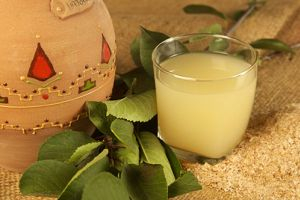 REŢETA ZILEI: Borş de tărîţe
REŢETA ZILEI: Borş de tărîţe  Sandu așteaptă partidele politice luni la Președinție
Sandu așteaptă partidele politice luni la Președinție 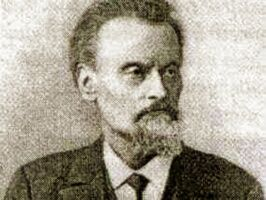 176 de ani de la naşterea scriitorului Zamfir Rally-Arbore
176 de ani de la naşterea scriitorului Zamfir Rally-Arbore  Pensiile în Moldova: Ce sistem de calcul există în țara noastră
Pensiile în Moldova: Ce sistem de calcul există în țara noastră  Retrospectiva civilizaţiilor antice
Retrospectiva civilizaţiilor antice 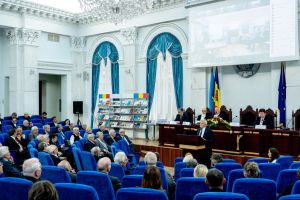 Mai mulți oameni de știință din Moldova au fost premiați
Mai mulți oameni de știință din Moldova au fost premiați  15 noiembrie - Calendarul celor mai importante evenimente din trecut și prezent
15 noiembrie - Calendarul celor mai importante evenimente din trecut și prezent 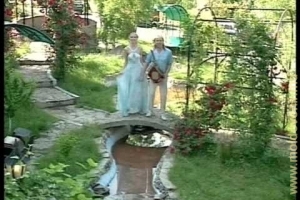 MELODIA ZILEI: Anatol şi Irina Bivol - Ileana și Constantin
MELODIA ZILEI: Anatol şi Irina Bivol - Ileana și Constantin  Loviți de secetă! Fermierii au obținut o recoltă mai mică de floarea-soarelui
Loviți de secetă! Fermierii au obținut o recoltă mai mică de floarea-soarelui  Moldografia: Clădirea conacului moșiei Vila Mîndîc
Moldografia: Clădirea conacului moșiei Vila Mîndîc  Persoanele cu maladii oncologice beneficiază mai rapid de investigații de înaltă…
Persoanele cu maladii oncologice beneficiază mai rapid de investigații de înaltă…  Adunarea ţării în Moldova la 582 de ani
Adunarea ţării în Moldova la 582 de ani  În municipiul Chișinău va fi inaugurat Centrul de Monitorizare a Traficului
În municipiul Chișinău va fi inaugurat Centrul de Monitorizare a Traficului 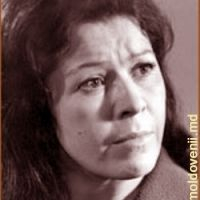 Marica Balan – o legendă a scenei
Marica Balan – o legendă a scenei 



